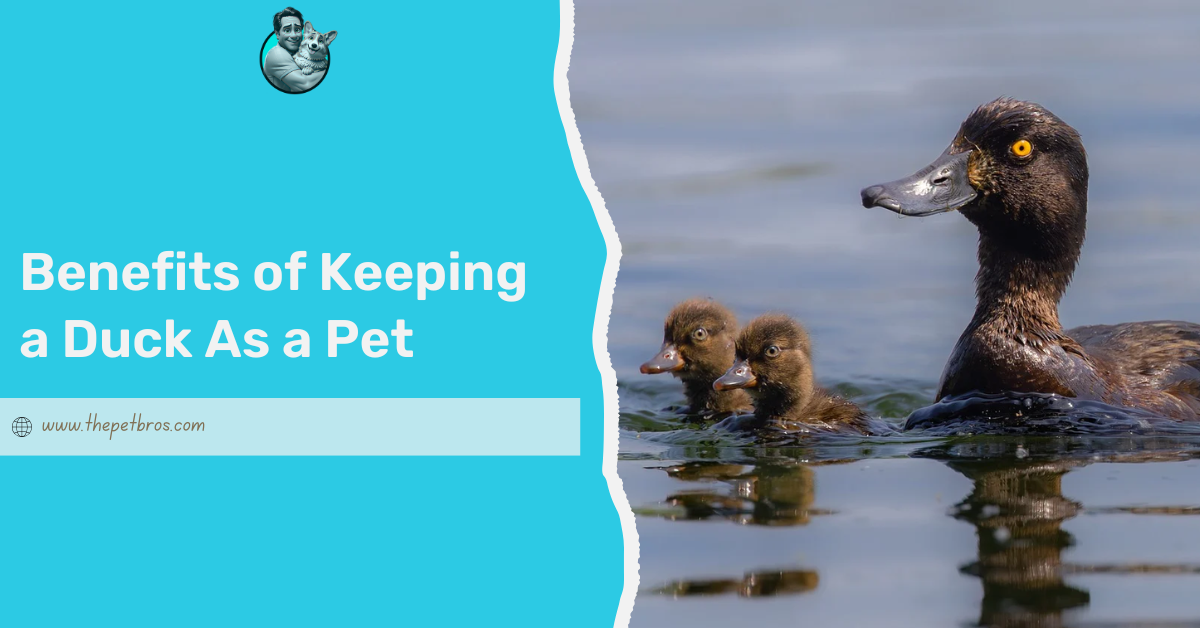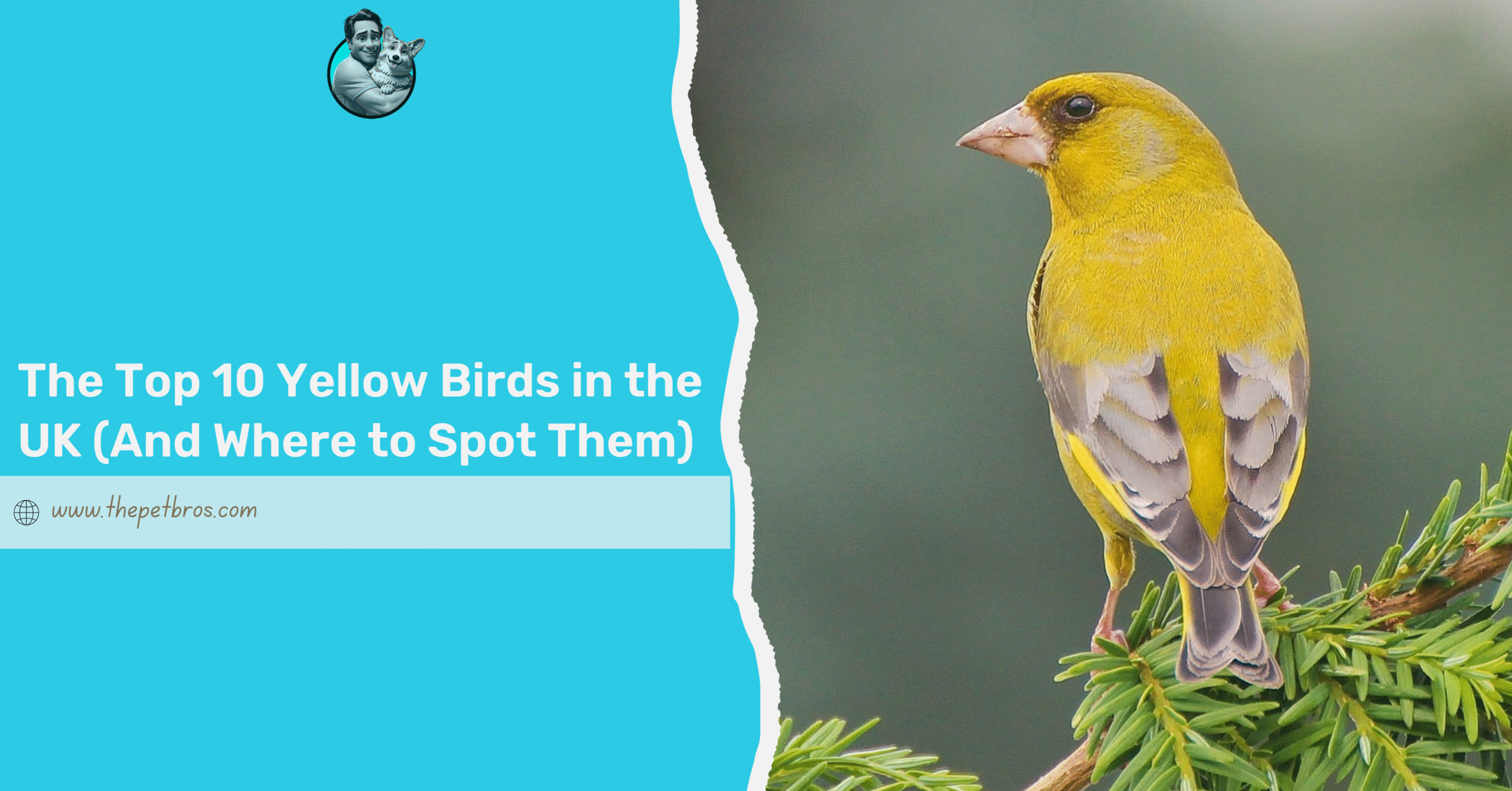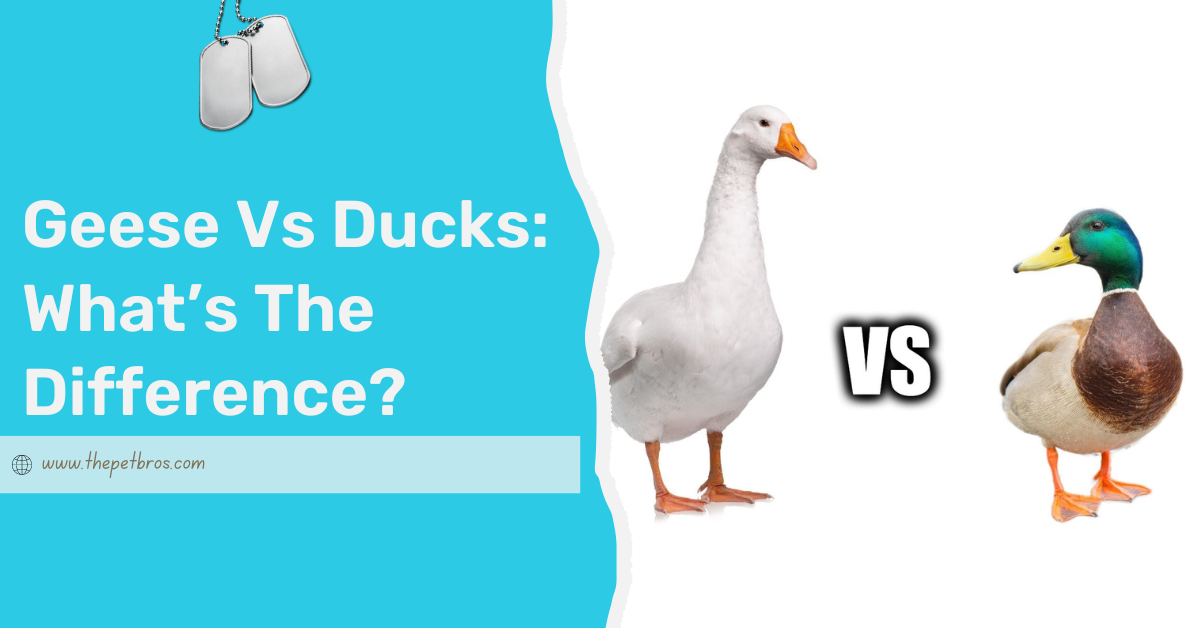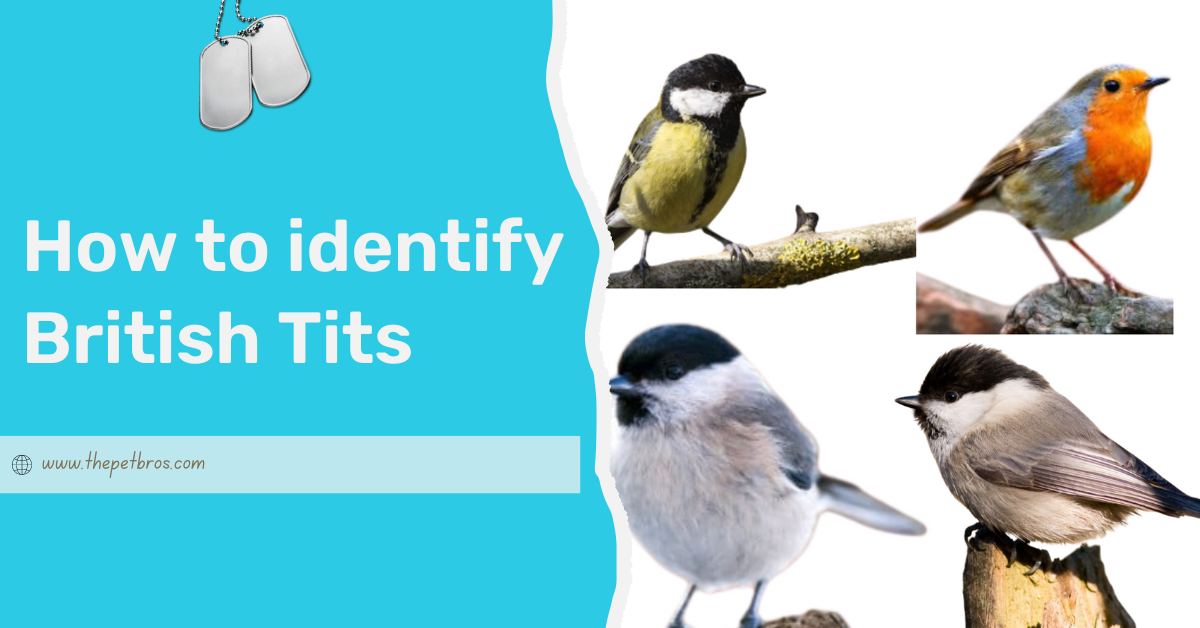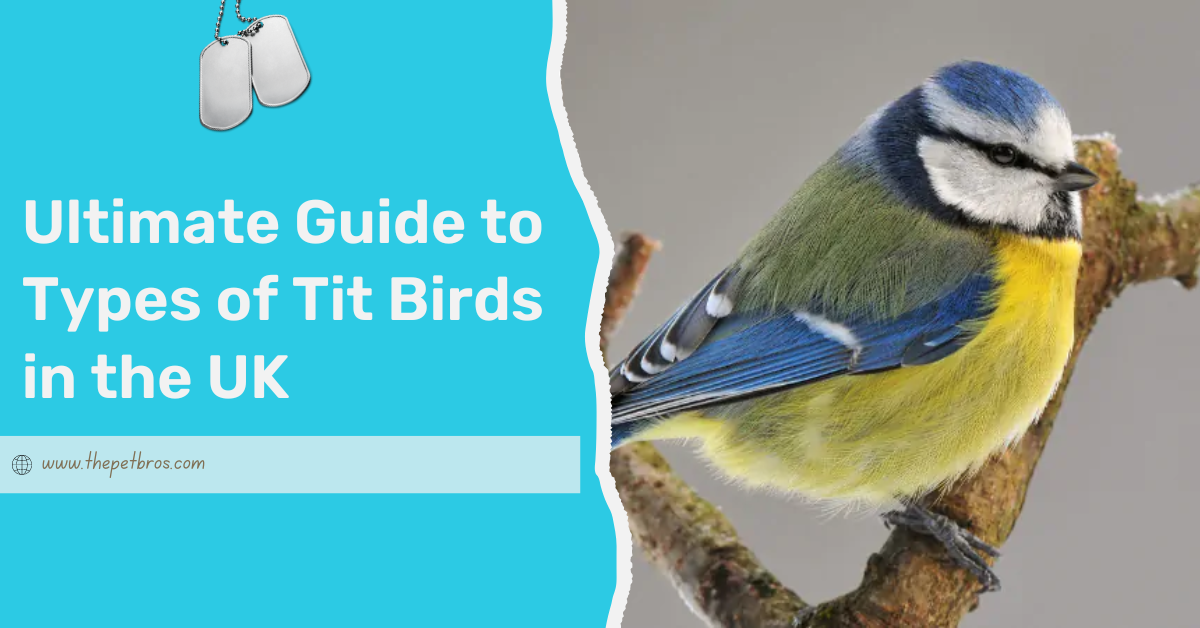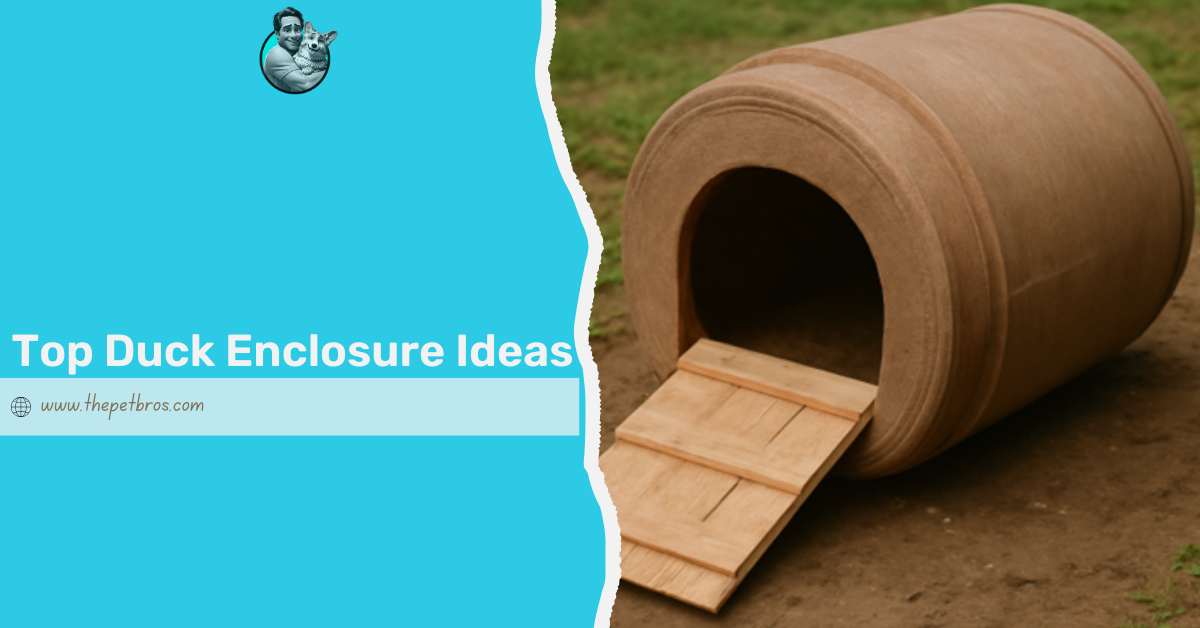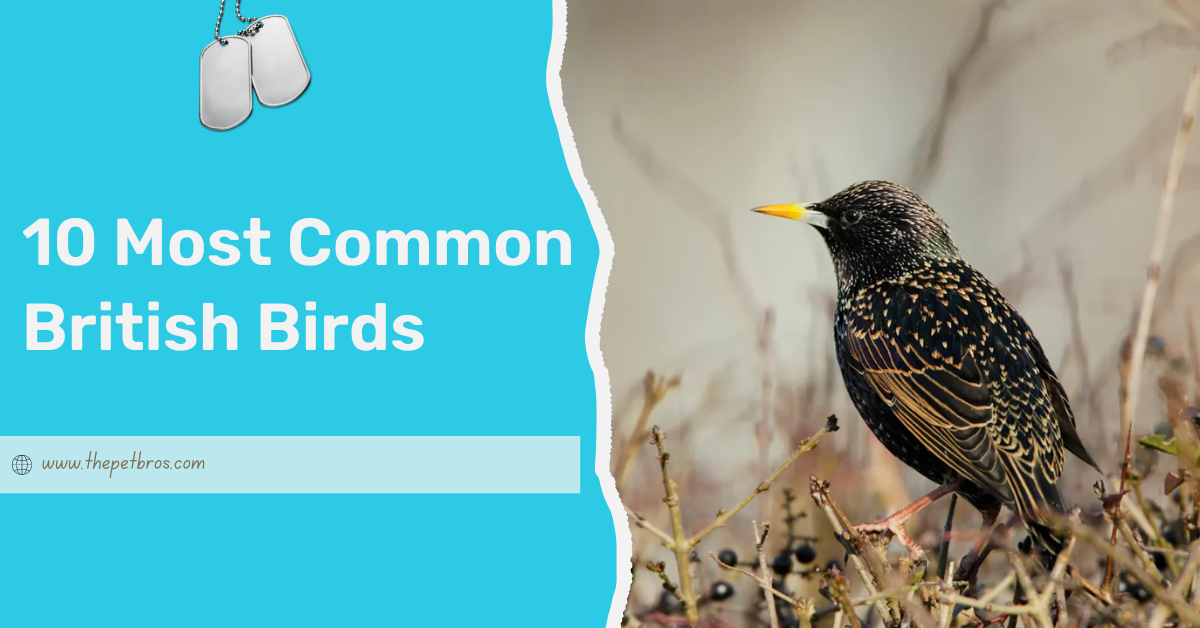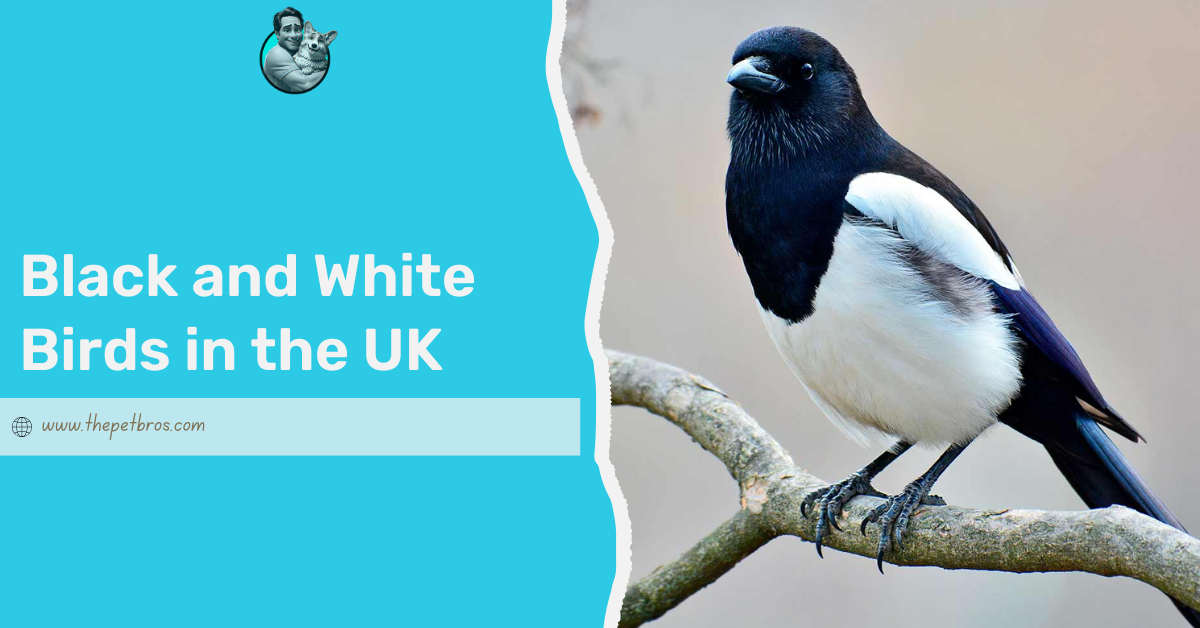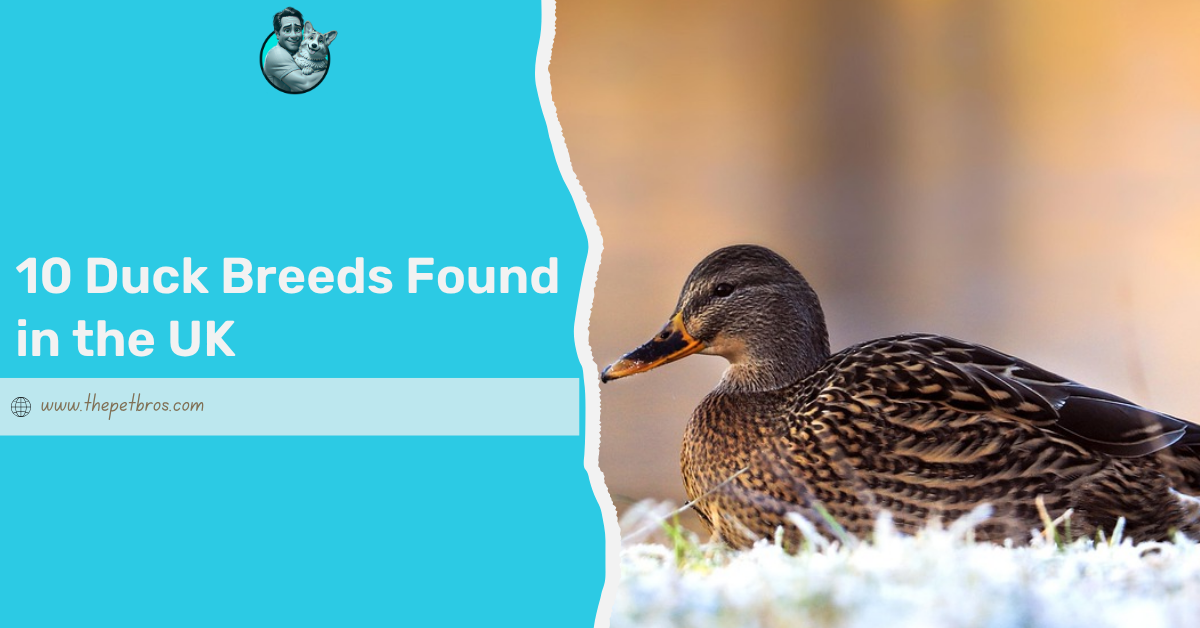When you think of pets, ducks probably aren’t the first animals that come to mind. However, keeping a duck as a pet can be just as rewarding as having a dog or a cat. Their quirky and affectionate nature can bring a lot of joy to your home.
The benefits of keeping a duck as a pet go beyond their adorable waddles and playful personalities. Unlike other pets, ducks are social, low-maintenance, and can even contribute to a healthier garden. They even help with pest control! If you’re looking for a unique companion or a practical addition to your home, here are 7 surprising reasons and benefits of keeping a duck as a pet!
7 Benefits of Keeping a Duck As a Pet
1. Friendly and Social Nature
As mentioned in the introduction, unlike other pets that may prefer to keep their distance, ducks enjoy human interaction and can form strong bonds with their owners. Many duck keepers find their pets following them around the garden, wagging their tails in excitement, just like a dog would.
Some pet ducks learn to recognise their owner’s voice and will quack in response when called. Others enjoy gentle head rubs or will sit near their owners, showing clear signs of trust and affection. Some ducks even develop unique routines, such as waiting at the door for their owners in the morning or eagerly greeting them after a long day.
Aside from bonding with humans, ducks thrive amongst themselves. A single duck might become lonely or stressed without a companion, leading to excessive quacking or anxious behaviour. If you plan to bring a duck into your home, consider getting at least two so they can socialise, preen at each other, and engage in playful behaviour.
2. Low Maintenance
I know keeping a duck as a pet sounds like hard work, but the truth is, it isn’t. Compared to high-energy pets like dogs, ducks are surprisingly low-maintenance. You don’t have to groom them regularly or even provide full attention. Just grant them access to water to keep their feathers clean and a safe space to roam.
Ducks are also reasonably hardy animals. They can tolerate hot and cold weather if there’s a good duck coop. For example, a well-insulated duck house with straw bedding in winter will keep them warm, while in summer, a shaded area and access to cool water will prevent overheating.
Also, feeding ducks is simple and affordable. Ducks thrive on pellets, grains, vegetables, and occasional treats like mealworms or fruit. Many duck owners find that their pets happily forage in the garden, munching on weeds and insects, which also helps with pest control. And guess what? A well-fed duck is healthier and less likely to wander off in search of food!
3. Pest Control
Gardeners, especially in the UK, often struggle with slugs and other pests that damage crops, but ducks see them as a tasty treat, thanks to their natural ability to control pests. In fact, they happily spend time searching for insects, slugs, and even tiny snails.
So, instead of battling an infestation with chemicals, a pet duck provides an eco-friendly and effective solution. They’ll wander around, picking off bugs while aerating the soil with gentle paddling.
4. Provision of Nutritious Eggs
One good turn deserves another, right? Well, the same applies to a duck pet. If you own a duck pet, rest assured that you will have a house full of fresh and nutritious eggs. I mean, any list of benefits of keeping a duck as a pet is incomplete without stating this obvious reason. And to put things into better context, duck eggs are often considered superior to chicken eggs due to their rich flavour and larger size.
Speaking of nutrition, duck eggs contain more protein and healthy fats than chicken eggs, making them a favourite among bakers and food lovers. According to a recent study, duck eggs contain 50% more Vitamin A than chicken eggs. Also, their thick shells give them a longer shelf life, so they stay fresh longer.
Many domestic duck breeds, especially Khaki Campbells and Indian Runners, are excellent layers and can produce up to 300 eggs annually. While they might not lay every day like some chickens, their eggs are well worth the wait.
5. Eco-friendliness
Ducks contribute greatly to the environment. They are natural fertilisers, meaning their droppings enrich the soil with essential nutrients. Unlike synthetic fertilisers, duck waste is completely organic and helps plants thrive without the risk of harmful chemicals.
A pet duck can be a fantastic addition if you have a vegetable patch or flower garden. Their gentle foraging aerates the soil, improving its quality and drainage. They also eat weeds, reducing the need for manual weeding or chemical herbicides. Some gardeners even let ducks roam in certain areas to help maintain a healthy, balanced ecosystem.
Now, of course, chickens do this, too. However, ducks don’t scratch up the ground as aggressively as chickens, making them less destructive to gardens. While they do love a good puddle, they tend to be gentler on plants, which makes them an excellent option for you.
6. Less Aggressiveness
If you worry about aggression, ducks are a fantastic alternative to chickens or geese. I think that’s the major difference between ducks and geese, particularly. While some chickens can be territorial and peck at their owners, ducks are generally much more docile and easygoing. Even in their coop, ducks are less likely to fight over food or dominance. For example, if you introduce new chickens to an existing flock, you might witness bullying as they establish a pecking order. Ducks, on the other hand, tend to be more welcoming.
Also, unlike geese, recognised for their loud honking and territorial behaviour, ducks have a friendlier nature. A well-socialised pet duck will happily waddle up to greet you rather than chase you around the garden! This makes them great for homes with children or other pets.
7. Source of Entertainment
Ducks have a natural charm and playful personality, making them incredibly entertaining pets. They amuse you, whether waddling around the garden, splashing in water, or curiously exploring their surroundings.
Unlike some pets that prefer to nap all day, ducks are always up to something. They enjoy playing with water, digging in the mud, and interacting with their surroundings in unique ways. Their quirky behaviour makes them great stress relievers, and many owners find joy in simply watching their ducks go about their day.
Ducks are also known for their comical expressions and adorable habits. From happy tail wags to excited quacks when they see their favourite human, they just make you smile.
Top 3 Things to Consider Before Getting a Pet Duck
Ducks are pretty different from your typical furry or feline friends, and preparing for their arrival requires a different approach. To ensure they thrive in your home, you must meet specific requirements that keep them comfortable, happy, and healthy.
These include:
- Outer Space and Water: Ducks are not indoor pets. They thrive in outdoor environments with space to roam, forage, and swim. At the very least, they need a secure garden or backyard with access to a shallow pool, pond, or water container for bathing and preening. Water is essential for a duck’s health. Unlike chickens, ducks use water to clean their nostrils, keep their eyes moist, and maintain their waterproof feathers. Without it, they can develop health issues. You must provide constant access to clean water for drinking and bathing.
- Other Companions: Ducks are highly social creatures, meaning they dislike being alone. Your duck can become lonely, anxious, and even depressed without a companion. Ideally, I recommend keeping at least two ducks together so they can interact, communicate, and engage in natural behaviours. If you already have other ducks or poultry, introducing a new duck might be easier, but don’t be in a rush. Introduce them gradually. While ducks can sometimes get along with animals like chickens, their behaviour and needs are pretty different, so having another duck as a companion is always best.
- Good Duck Coop: Ducks may be hardy, but they still need a safe and secure shelter to protect them from predators and harsh weather. Foxes, raccoons, and even some birds of prey can pose a threat to pet ducks, so a sturdy, enclosed duck house is essential. Their shelter should provide warmth in winter and ventilation in summer. Unlike chickens, ducks don’t roost, so they need a flat, comfortable space to sleep. As you know, ducks are pretty messy, especially when it comes to water. They love to splash, dig in the mud, and make a mess of their surroundings. Their droppings are also frequent and watery, so their living area needs regular cleaning. To manage the mess, you can use straw, sand, or other absorbent bedding in their coops. Placing water sources on easy-to-clean surfaces can also help reduce muddy areas. You can also learn more on how to build a good duck coop here.
So, Are You Ready to Own a Duck Pet?
The benefits of keeping a duck as a pet are hard to ignore. They’re friendly, low-maintenance, and provide plenty of entertainment, all while controlling pests and offering fresh eggs.
If you’re ready for a unique companion, a duck could be just the pet you’ve been looking for! So, why not consider adding a pet duck to your family today and enjoy its many benefits? Would you be getting a pet duck soon, or do you have more questions? Please leave them in the comment section below!
Frequently Asked Questions
Are Ducks Noisy Pets?
Yes, ducks can be vocal, but they are quieter than chickens or geese. Female ducks, especially breeds like Pekins, can be chatty and quack loudly when excited or calling for food. Males (drakes) tend to be much quieter. If noise is a concern, choose a quieter breed, like Muscovy ducks.
What Can I Feed My Ducks Besides Pellets?
Ducks love leafy greens like lettuce and kale, grains such as oats and rice, and even small amounts of fruit like watermelon and berries. Additionally, ducks are natural foragers and will happily snack on insects, slugs, and small aquatic plants if given the opportunity.
Do Ducks Recognise Their Owners?
Well, everything boils down to proper interaction. Ducks are intelligent birds and can learn to recognise their owners by voice, appearance, and even scent. Many pet ducks will quack excitedly when they see their favourite human, follow them around the garden, and even respond to their name.






